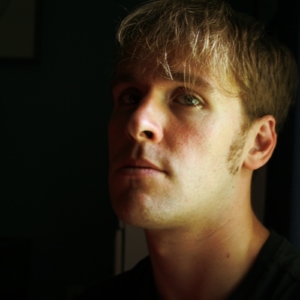In 1939, The Partisan Review sent out a questionnaire to a number of prominent writers, asking them about literature, politics and their identities. While the questionnaire hasn’t been completely forgotten, we felt that these specifically political questions were rarely being asked of our writers. Considering that 2011 was a year of global unrest, we felt that it would be particularly relevant to update The Partisan Review’s questions. (For the curious, here are the original questions.)
Blake Butler is the author of four books of fiction and nonfiction, including There Is No Year and Nothing: A Portrait of Insomnia, which were both published last year. He edits HTMLGIANT.
2011 was the year of the Arab Spring. There have also been massive protests in Greece, Spain, Britain, and most recently, the United States. Does literature have a responsibility to respond to popular upheaval?
No. If anything, I think literature has a responsibility to not respond.
Do you think of yourself as writing for a definite audience? If so, how would you describe this audience? Would you say that the audience for serious American writing has grown or contracted in the last ten years?
I write because I’m typing. I have no idea who actually reads anything, though that doesn’t mean I never think about the fact that they exist, or that it really matters.
Do you place much value on the criticism your work has received? For the past decade we’ve seen a series of cuts to predominant literary magazines and literary supplements, and in response, criticism has moved online. Do you think this move to the non-professional realm has made literary criticism more or less of an isolated cult?
I look at it but I’m not sure it’s ever done anything to me as a person. I think it feels the same to get shitted on as it does to get praised. Print and online are exactly the same thing. I’m not sure “criticism” is what I would call what appears in many of the forums I look at; more like “talking about.”
Have you found it possible to make a living by writing the sort of thing you want to, without other work? Do you think there is a place in our current economic system and climate for literature as a profession?
No.
Do you find in retrospect, that your writing reveals any allegiance to any group, class, organization, region, religion, or system of thought, or do you conceive of it as mainly the expression of yourself as an individual?
If I think about other people while writing it’s usually because I’m laughing. If I think about myself while writing it’s usually because I’m trying to hurt myself abstractly.
How would you describe the political tendency of American writing, as a whole, since 2001? How do you feel about it yourself?
I don’t care.
Over the past ten years, America has been in a state of constant war with a nebulous enemy. This war has extended to fronts throughout the world. Have you considered the question of your opinion on an unending war on terrorism? What do you think the responsibilities of writers in general are, in the midst, of unending war?
The nebulous enemy is not terrorism, it is us. I mean that in the kindest way.
This post may contain affiliate links.









